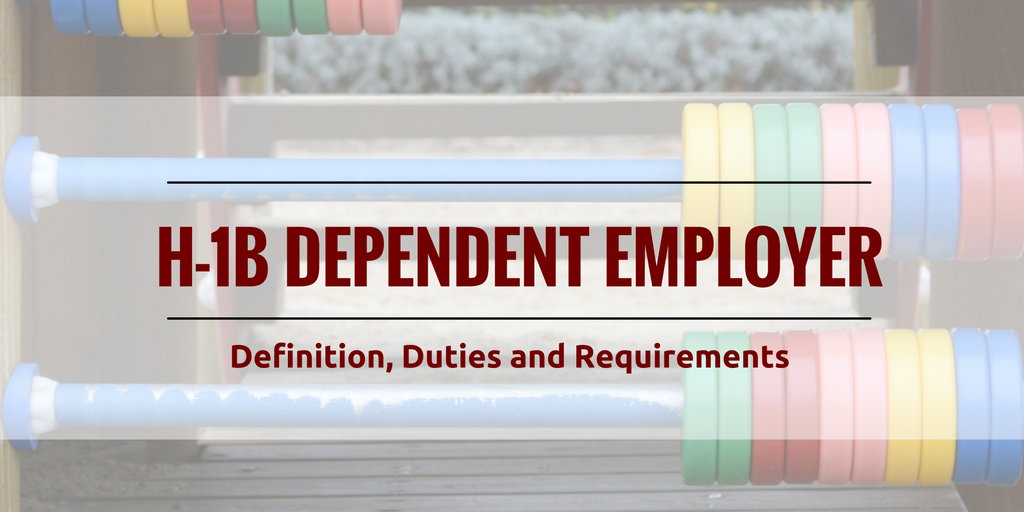H-1B Dependent Employer – Definition and Responsibilities
The definition of an H-1B dependent employer is important in a number of ways, including due to the H-1B regulations’ certain additional recruitment and attestation requirements to such employers. For H-1B employers, it is important to understand the definition and apply the analysis during each H-1B filing.
What is the Definition of an H-1B Dependent Employer?
Pursuant to 20 CFR 655.736, an H-1B dependent employer is one which meets one of the following standards:
- The employer has 25 or fewer full-time equivalent (“FTE”) employees in the U.S. and employs more than seven (7) H-1B nonimmigrants;
- The employer has at least 26 but no more than 50 FTE employees and employs more than twelve (12) H-1B nonimmigrants; or
- The employer has at least 51 FTE employees and employs H-1B nonimmigrants accounting for more than fifteen percent (15%) of the employer’s total FTE employees.
What Are the Duties of H-1B Dependent Employers?
If an employer is deemed to be an H-1B dependent employer, then an additional set of attestation and US worker recruitment requirements applies (unless an exemption applies – see below):
- The employer has to promise that it will not displace a similarly employed U.S. worker within ninety (90) days before or after an H-1B visa petition is filed;
- The employer will make good faith efforts to recruit U.S. workers; and
- The employer must make a job offer to an equally or better qualified U.S. applicant.
What are the Exceptions to the Additional Attestation Requirements for H-1B Dependent Employers?
Even if an H-1B employer is deemed to be dependent, there are two main exceptions to the attestation and recruitment requirements prior to filing an LCA in connection with an H-1B petition.
The H-1B dependent employer requirements do not apply to “exempt” H-1B candidates. Exempt H-1B candidates are those who either (1) hold a master’s or higher degree or its equivalent in a specialty related to the intended employment, or (2) will earn wages at an annual rate of at least $60,000.
Calculations Must Be Made With Each LCA/H-1B Filing
As employers constantly change the composition of their workforce, it becomes important to perform the H-1B dependent employer analysis with each LCA/H-1B filing. If an employer turns out that it is H-1B dependent and if the H-1B candidate it not exempt (as described above), then the additional set of requirements (described above) must be met before the H-1B petition can be filed.
Conclusion
Employers with more than a few H-1B workers should be very familiar with the definition of an H-1B dependent employer and ensure that the analysis is applied with each H-1B petition filing (if working with outside counsel, such as our firm, the outside counsel is normally responsible for this analysis). Misclassification or errors during this analysis can cause an H-1B petition to be denied, an approved H-1B petition to be revoked OR/AND can lead to penalties to the employer.
Please feel free to subscribe to our free weekly newsletter to obtain developments on this and related topics. If our office can be of any help in connection with an H-1B filing or you have have any questions about this article, please feel free to contact us.
Related News and Articles
The Capitol Immigration Law Group has been serving the business community for over 15 years and is one of the most widely respected immigration law firms focused solely on U.S. employment-based immigration. Disclaimer: we make all efforts to provide timely and accurate information; however, the information in this article may become outdated or may not be applicable to a specific set of facts. It is not to be construed as legal advice.

